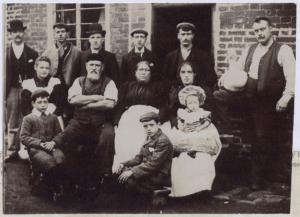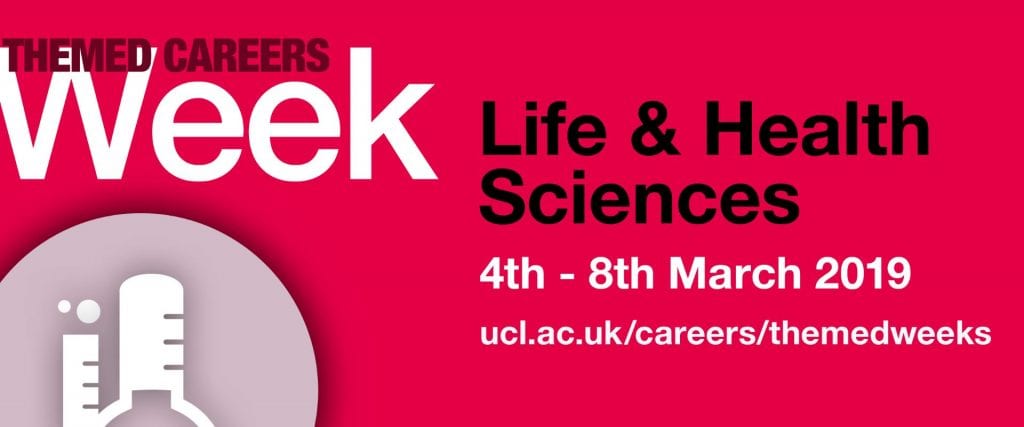Working on resilience: What would the Victorians do?
By UCL Careers, on 15 March 2019
Written by Recruitment and Selection Advisor, Susanne Stoddart.
For many employers, resilience springs to mind not only as an invaluable soft skill but also as a skill that is underdeveloped in graduate workers. Indeed, in a recent QS report on The Global Skills Gap in the 21st Century resilience was identified by employers as the skill that graduates are lacking in most when compared with its perceived importance. Defined as an individual’s ability to overcome difficult experiences and adapt to new situations, resilience is required to solve problems and prosper in today’s fast-changing job market. Resilience is also needed in order to manage setbacks in the job hunt and application process before even setting foot in the workplace.
“There is, perhaps, no situation in life in which difficulties have not to be encountered and overcome before any decided measure of success can be achieved. Those difficulties are, however, our best instructors, as our mistakes often form our best experience.”
In 2019, there was an ever-growing collection of personal development books on the market promising to help readers build that bounce back mentality so sought after by employers and necessary for overall wellbeing. But this isn’t a new trend in popular psychology. Around 150 years ago Victorian advice manuals also had a lot to say about resilience and its relationship with success. The above quote is taken from the first ever personal development self-help book, published by Samuel Smiles in 1859 and aptly titled Self Help.
Here are four tips that Dr Smiles (in an advice manual called Character, 1871) and Edward Sisson (in The Essentials of Character, 1910) had to offer on developing the ability to overcome problems and adapt. The advice still has relevance today for anyone looking to enhance these vital work skills. It reminds us that resilience is a skill that can be developed by trying to adopt certain behaviours and attitudes.
- Be Optimistic
For Edward Sisson, resilience involved developing a positive mindset or – in his words – ‘a more robust cheerfulness under the test of pain, loss, misadventure, disappointment’. Sisson wrote that ‘the cheerful man gets into the way of looking on the bright side… he gives preference in his attention to the pleasant, the encouraging, the desirable’. Living up to his name, Samuel Smiles also heavily prioritised a happy disposition when faced with challenges, highlighting that ‘cheerfulness is the first thing, cheerfulness is the second, and cheerfulness is the third’.
- Become a Lifelong Learner
Sisson believed that adopting a mindset that was continuously open to learning opportunities encouraged ‘the sort of education that removes mountains and turns obstacles into stepping-stones’. This enabled an individual ‘to take charge of their own culture and career’. These words have considerable relevance in today’s fast-changing job market where roles such as app developer didn’t even exist ten years ago and workers need to constantly update their skills and competencies to help futureproof their career.
- Identify Goals
For Sisson, having goals in life was vital for helping to put short-term difficulties into perspective, noting that ‘the forces of character flow most effectively into action only when they are rallied to the achievement of clearly conceived and firmly held purposes.’ Smiles agreed, expressing concern that without a future focus challenging times can force a person to become ‘like a body of stagnant water, instead of a running stream doing useful work and keeping the machinery of a district in motion’. Long before the popularisation of SMART (specific, measurable, achievable, realistic and time-bound) goal setting, Sisson highlighted that a person ‘must not merely dream of strength, of wisdom, of skill and power’; they should take steps and ‘resolve to attain them’. They should hold themselves accountable for ‘pursuing and achieving, and be inspired and energized by the vision’.
- Make Connections
Long before LinkedIn, Smiles recognised the importance of networking and building relationships that could provide a source of support and inspiration during periods of difficulty, uncertainty or exploration. Smiles advocated building connections with others in order to ‘learn not only from what they have enjoyed but – which is still more instructive – from what they have suffered’ on the road to success. Networks, Smiles continued, provide a means for ‘increasing our resources, strengthening our resolve and elevating our aims’. Alternatively, ‘an entirely new direction’ may come as a result of ‘a happy suggestion, a timely hint, or the kindly advice’.
Have the Victorians inspired you to start strengthening your resilience today? If so, why not begin by exploring the UCL Alumni Online Community? On this exclusive networking site, you can make connections with alumni from all over the world and even search for a mentor from the pool of experienced alumni working in a wide range of sectors.
Have you already identified any career goals that will help you stay on track or would you like some help investigating your ideas further? Remember, whether your aim is to explore your options, find opportunities to develop your skills and sector experience, or apply for a job, UCL Careers is here to help.
 Close
Close












